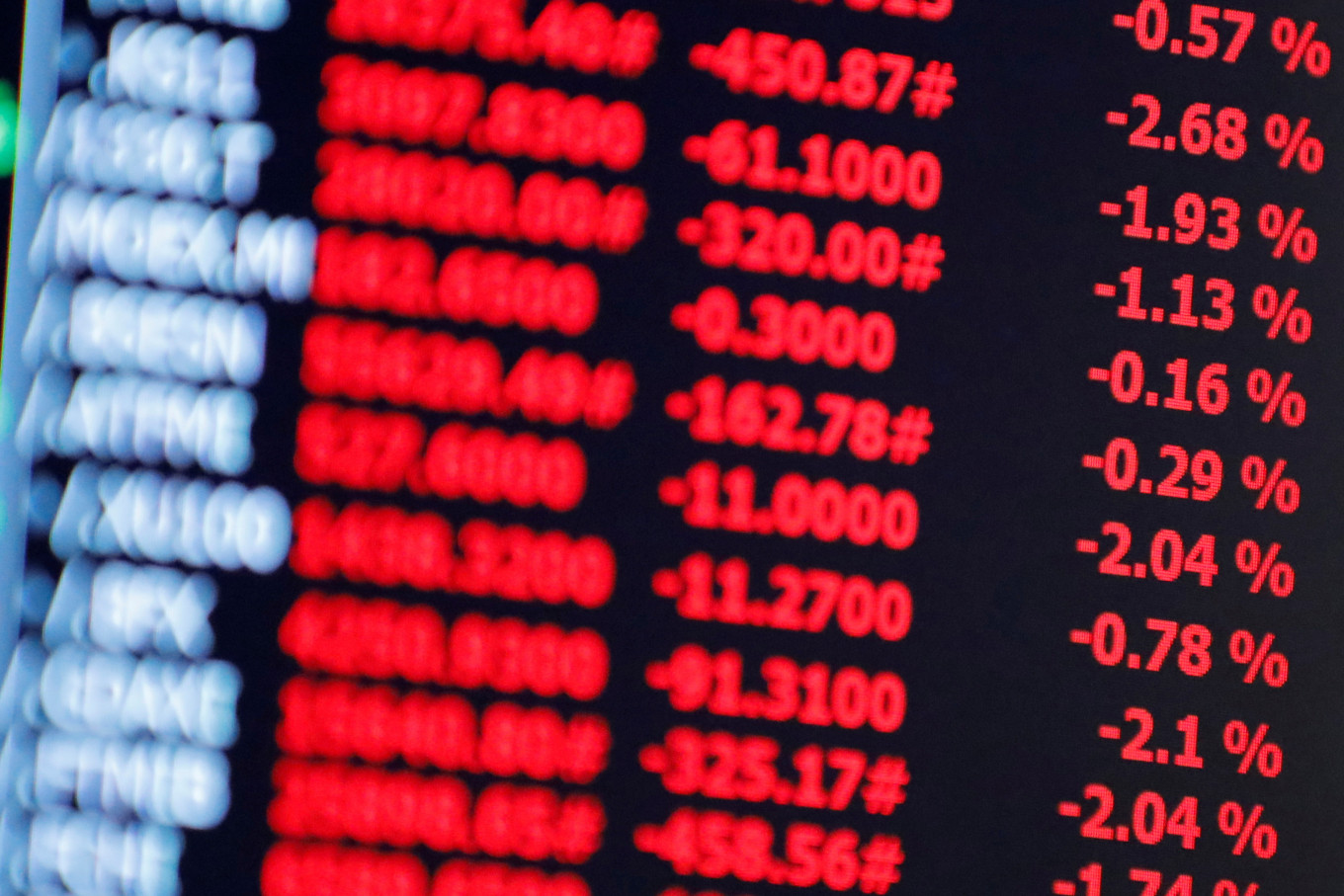Popular Reads
Top Results
Can't find what you're looking for?
View all search resultsPopular Reads
Top Results
Can't find what you're looking for?
View all search resultsAsia shares swing higher, oil surges to 3-year peak
Oil stormed past its July peaks as global output disruptions forced energy companies to pull large amounts of crude out of inventories, while a shortage of natural gas in Europe pushed costs up across the continent.
Change text size
Gift Premium Articles
to Anyone
A
sian shares crept higher on Monday as risk sentiment turned for the better, though a surge in oil prices to three-year highs could inflame inflation fears and aggravate the recent hawkish turn by some major central banks.
Oil stormed past its July peaks as global output disruptions forced energy companies to pull large amounts of crude out of inventories, while a shortage of natural gas in Europe pushed costs up across the continent.
Brent added another 98 cents on Monday to US$79.07 a barrel, while United States (US) crude rose 97 cents to $74.95.
"We forecast that this rally will continue, with our year-end Brent forecast of $90/bbl vs. $80/bbl previously," wrote analysts at Goldman Sachs in a client note.
"The current global oil supply-demand deficit is larger than we expected, with the recovery in global demand from the Delta impact even faster than our above consensus forecast."
Such an increase could stoke speculation that global inflation will prove longer-lasting than first hoped and hasten the end of super-cheap money, favouring reflation trades in bank and energy stocks while bruising bond prices.
MSCI's broadest index of Asia-Pacific shares outside Japan firmed 0.5 percent, though that followed three consecutive weeks of losses.
Japan's Nikkei gained 0.4 percent on hopes for further fiscal stimulus once a new prime minister is chosen. Japan will hold a Liberal Democratic Party leadership race on Sept. 29, and the winner is assured of becoming the country's next prime minister because of the party's parliamentary majority.
Nasdaq futures rose 0.4 percent, and S&P 500 futures 0.5 percent.
Chinese blue chips gained 1.1 percent as the country's central bank pumped more money into the financial system and investors dared to hope Beijing would limit the fallout from the troubled China Evergrande Group.
"We expect policymakers in China to allow deleveraging of property sector debt to take hold with an eye to reducing moral hazard, but are confident that they will actively manage the restructuring and effectively limit financial spillovers," said analysts at JPMorgan in a note.
Eyes will also be on US fiscal policy with the House of Representatives due to vote on a $1 trillion infrastructure bill this week, while a Sept. 30 deadline on funding federal agencies could force the second partial government shutdown in three years.
The week is packed with US Federal Reserve speeches led by Chair Jerome Powell on Tuesday and Wednesday, with more than a dozen other events on the calendar.
The latest hawkish shift by the US central bank, and several others globally, saw bond yields seesaw before ending last week sharply higher.
The 10-year Treasury is at its highest since early July at 1.46 percent amid talk the reflation trade could be back on as the world braces for the end of super-cheap money.
The lift in yields underpinned the US dollar, particularly against emerging market currencies which compete with Treasuries for global funds.
Against a basket of currencies, the dollar was firm at 93.249 and just off August's 10-month top of 93.734.
It even made some ground on the yen to reach a major chart barrier at 110.79. A break of that would take the currency to territory not visited since early July.
The euro was steady at $1.1719 as investors pondered the implications of a German government led by the centre-left Social Democrats after a narrow victory in Sunday's election.
The Social Democrats claimed a "clear mandate" to lead a government for the first time since 2005, though it was not yet clear if they could actually form a coalition.
"The likelihood of a political shift to the left suggests Germany's fiscal stance could become less of a drag on the economy over the next few years than is currently projected," said analysts at CBA in a note. "This would ultimately benefit the euro."
Bitcoin steadied at $43,828 after taking a fall on Friday after Chinese regulators announced a blanket ban on all crypto transactions and mining.
The firmer dollar has weighed on gold, though it was a little firer on Monday at $1,759 an ounce and above a recent six-week low of $1,738.










